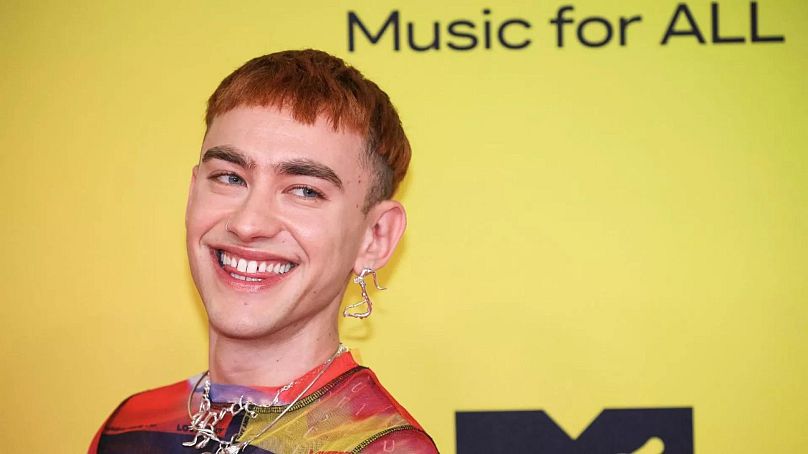The open letter from Queers for Palestine claims that Israel’s inclusion in Eurovision "would enable and cover up its war crimes and crimes against humanity.”
More than 450 queer artists, musicians and writers have signed a letter calling for Britain's Eurovision 2024 entry Olly Alexander to boycott this year's competition.
 ADVERTISEMENT
ADVERTISEMENT
 ADVERTISEMENT
ADVERTISEMENT
The group, Queers for Palestine, include the actors Maxine Peake and Brigette Lundy-Paine, band Goat Girl, and writers Sarah Schulman and Jason Okundaye.
Their letter – which can be read in full here – comes after a number of countries and organisations lobbied for a mass boycott of the event due to Israel's involvement in the competition.
The letter reads: "By refusing to expel Israel from the competition, the European Broadcasting Union (EBU) is providing cultural cover and endorsement for the catastrophic violence that Israel has unleashed on Palestinians."
Addressing the singer, actor and Years & Years vocalist directly, Queers for Palestine write: “We share the vision of queer joy and abundance you’ve offered through your music, and share your belief in collective liberation for all. In this spirit, we ask you to heed the Palestinian call to withdraw from Eurovision... There can be no party with a state committing apartheid and genocide.”
Following the letter, Olly Alexander, Bambie Thug, Megara, SABA and more artists released a joint statement on X:
It does not read as a specific response to the letter, but opens with: "We want to begin by acknowledging the privilege of taking part in Eurovision."
After highlighting the importance of standing in solidarity with the oppressed and calling for “an immediate and lasting ceasefire, and the safe return of all hostages”, the statement adds: “We firmly believe in the unifying power of music, enabling people to transcend differences and foster meaningful conversations and connections. We feel that it is our duty to create and uphold this space, with a strong hope that it will inspire greater compassion and empathy.”
So, no chance of Alexander dropping out then.
Some X users didn't hide their disappointment, while others felt that Alexander was caught between a rock and a hard place.
While he previously signed a letter in support of Palestine, Alexander has not boycotted the competition entirely and is still scheduled to perform his song 'Dizzy' at the competition in Sweden's Malmö Rådhus in May.
Indeed, the BBC was urged to drop Alexander after it emerged he had signed a letter describing Israel as an “apartheid regime”. That letter from LGBTQ+ activist group Voices4London, called for a ceasefire in Gaza and for Israel to allow aid into the area.
At the time the revelation prompted criticism from the Conservative Party, with a source accusing the BBC of “either a massive oversight or sheer brass neck” in selecting Alexander.
Considering it was signed before Alexander was confirmed as the UK’s Eurovision entrant, the BBC did not drop him.
Despite the protests, Israel has secured its place in the competition, with their entry Eden and her song formerly titled ‘October Rain’ - now titled ‘Hurricane’.
Israel was told the lyrics of its submission had to be changed following the song's ban for breaking rules on political neutrality.
The original lyrics of ‘October Rain’ included the lines: “There’s no air left to breathe” and "They were all good children, every one of them.” The song also referred to “flowers”, which is often used as military code for war fatalities.
Israel’s inclusion has caused much controversy.
In January, an open letter was issued to the EBU and signed by over 1,000 Swedish artists, calling for Israel to be withdrawn from competing. Other Eurovision countries having called for Israel to be suspended over the war in Gaza include artists in Iceland, Norway and Denmark. In Finland, a petition signed by more than 1,400 music industry professionals accused their national broadcaster Yle of double standards, saying it was among the first to demand the ban on Russia after its invasion of Ukraine in 2022.
Elsewhere, the likes of Helen Mirren, Gene Simmons, Sharon Osbourne and Boy George signed an open letter urging Eurovision organisers to allow Israel to compete this year.
The Eurovision Song Contest will take place from 7 to 11 May in the Swedish city of Malmö.











